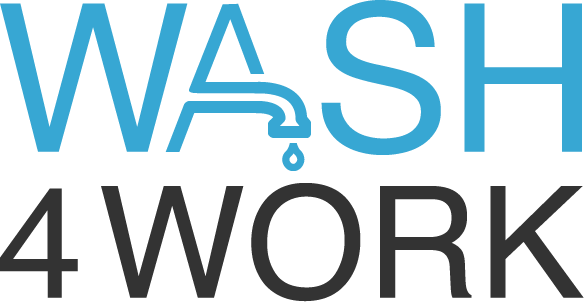
The business case for investing in WASH access is getting stronger. While the past few years have demonstrated a need for safely managed sanitation, hygiene, and water supply to reduce exposure to harmful diseases such as COVID-19, a remaining risk to WASH access is climate change. Climate change directly affects the quality and quantity of water supplies and impacts the sustainability of WASH behaviors, especially for the most vulnerable.
To ensure the continued success of our communities, businesses, and supply chains – the impact of climate change on access to WASH must be fully understood. Going forward we join global and local stakeholders in developing and applying a climate-resilient WASH framework to our water, sanitation, and hygiene access programs and investments.
The framework for action will include the following considerations:
- Assessment of climate risk: Understanding the local context of climate change, water systems, and water resources: Hazards, exposure, and vulnerability
- Impacts of climate risks on WASH: Understanding the impacts of climate change on water, sanitation and hygiene access, services continuity and reliability
- Preparedness and adaptation: Planning for the timely response to expected climate impacts and potential adaptation of water supply, sanitation, and hygiene services
- Solutions and implementation: Identifying opportunities to improve water, sanitation, and hygiene services with climate-smart low-carbon infrastructure, technologies, and capacity building in communities
- Testing and monitoring: Identifying opportunities to continuously improve the continuity and reliability of services through benchmarking, evaluation, and validation
- Reporting & disclosure: Contributing to advancements in leading practice by sharing learnings, findings, and impacts in collaboration with our stakeholders

Customers are increasingly expecting large companies and their suppliers to demonstrate that they are providing access to WASH, per United Nations international human rights standards. By signing the WASH Pledge commitment, companies commit to providing access to safe water, sanitation, and hygiene in the workplace for all their employees in all premises under direct company control. Companies and suppliers who commit to the WASH Pledge are considered WASH Pledge signatories.
To help WASH Pledge signatories fulfill their commitments, WASH4Work has developed (1) a WASH in the supply chain work group for companies and (2) a support program for their suppliers. The work group and support program are helping companies and suppliers: define a leading practice for the implementation of WASH actions within supply chains, share learnings about supplier engagement and support mechanisms, and develop support materials for suppliers’ WASH Pledge implementation journey.
The working group aims to:
- Define leading practices on how to implement WASH actions across supply chains via the WASH Pledge mechanism
- Share learnings on how to engage suppliers via the WASH Pledge mechanism
- Develop support materials for suppliers’ WASH Pledge implementation journey.

To prepare businesses for new mandatory sustainability reporting laws, increasing pressure to provide more disclosure on businesses’ exposure to risks due to lack of access to WASH, and the actions businesses are taking to mitigate these risks, WASH4Work has initiated a project to develop a standardized accounting framework for WASH benefits and financial ROI to be launched at the UN Water Conference in March 2023.
The framework aims to enable businesses to seamlessly embed WASH benefit accounting into their overall corporate water stewardship accounting and reporting. A standardized WASH benefits accounting framework will align with the current industry-standard volumetric water benefits accounting method (VWBA). The project team includes members of the CEO Water Mandate, Pacific Institute, LimnoTech, Water.org, WaterAid, Coca-Cola, Diageo, Gap Inc., Microsoft, Starbucks, and Xylem.
Historically the impacts of corporate investments in WASH access have been measured in terms of the number of people (beneficiaries) reached. In addition, WASH investments have not been linked to corporate water stewardship goals for quantifying the volumetric water benefits of water stewardship activities. The WASH Benefits Accounting Framework will go beyond beneficiary counting to understand the broader and multiple benefits and impacts of WASH investments (social, environmental, economic), including the benefits of WASH access on water quality and quantity stewardship goals.
The WASH benefit accounting framework aims to:
- Strengthen the business case for investing in WASH; to go beyond beneficiary counting to a standardized framework and guidance for identifying and accounting for the broader impacts, outcomes, and benefits of investing in WASH such as: social, environmental, economic, health, well-being, and resilience.
- Make more concrete and science-based linkages between the benefits of WASH access and water quality, quantity, replenishment and resilience, and corporate water stewardship goals.
- Embed into the framework is the integrated, systems-level approach of climate-resilient WASH.
- Provide guidance for businesses on the use and implementation of the standardized accounting framework
